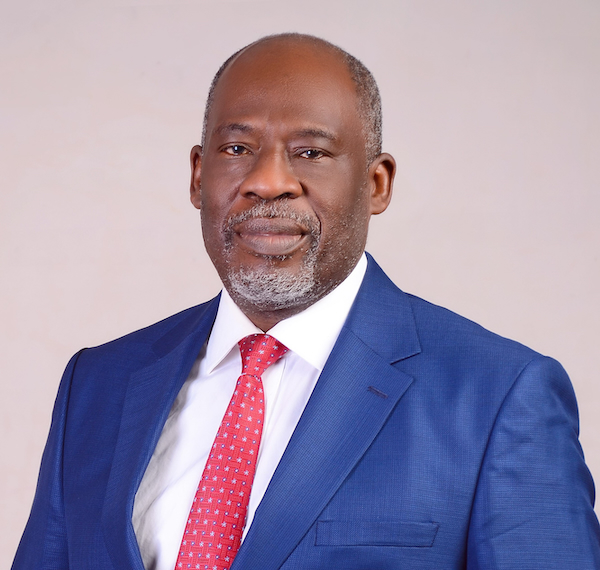Student Stories - PhD
Peter Bamkole | PhD Alumnus from Nigeria

Let me start by saying that I am now enjoying the best of two worlds. First as a practitioner and now as an academic. My education at ISM, which culminated in the defense of my Thesis "Diffusion of e-Learning Models for Entrepreneurship Education within Training Institutions in Nigeria: A Multiple Case Study," enabled me to put a theoretical framework around one of the most impactful programs that I was implementing for an international foundation.
The literature review provided me with the opportunity to dive deep and understand the online training landscape, especially what was not working and why. This enabled me to design support systems that ensured a higher learners' completion rate in that program. By the time I was at the oral defense stage, I had literally tested all my hypotheses. So, now I am increasingly trying to find out the theoretical concept that underpins whatever practical things that I am doing, which is a new way of thinking for me.
Within seven months of completing my PhD at ISM, I became the Chief Operating Officer at Pan-Atlantic University, and eighteen months thereafter, I became the Deputy Vice-Chancellor (Administration). So far, it's been an interesting journey.
Which professional accomplishments are you most proud of?
After pioneering and leading the Enterprise Development Centre (EDC) of the Pan-Atlantic University for two decades, I would say the writing of my book "Built by Enterprise: Unlocking the Potentials of SMEs in Nigeria" is one accomplishment that I am truly proud of. It gave me the opportunity to put into use the skills that I developed during my study at ISM. The book covered 20 years of my career. Research, conducting semi-structured interviews, triangulating information, and providing evidence and insights, all within six months, made it feel like I was writing another thesis. As my thesis was qualitative research, unknowingly to me, I had developed a skill set where I could easily pull out what was most relevant in a conversation/interview.
Beyond this book, however, I have written book chapters and journal articles. One of my case studies, "Navigating Change: Transformational Leadership at Federal Medical Centre, Ebute-Metta," was published in June 2024 in The Journal of Business and Management Teaching Cases (CASE FOCUS). I also had the privilege of writing a mini-chapter while at ISM in the book "The Innovative Business School - Mentoring Today's Leaders for Tomorrow's Global Challenges" with three of the five co-editors being ISM Professors (Daphne Halkias, Michael Neubert & Chris Adendorff). So, you see why I said earlier that I am enjoying the best of two worlds?
What were some of the most impactful experiences or lessons you learned during your time at ISM?
Quite a lot, but let me focus on just three.
First, it has to be discipline. To start and complete a doctoral program, discipline is a golden virtue. My daily study routine was 4-6 am and 10-11 pm on weekdays and 10 hours over the weekend. I had to combine it with leading EDC, which was in an exponential growth phase. Anyone living in Lagos would tell you that sparingly attending social events for four years while living in Lagos would be tagged "extreme discipline." Even while on family holidays, I still had to create time for my study in order to maintain the tempo. As the saying goes, "Whatever you do long enough becomes a habit," I still wake up at my study times even now.
Next would be the support system/network. Without the assistance of fellow students and faculty, completing the program would have been a dream. One must, however, be tenacious and open to receiving such support. In the same way, I also had to support and mentor new and struggling students. Once you have gone through the journey yourself, you tend to appreciate it when someone is looking for help - something as simple as getting respondents for their survey.
The third one I would say is being part of a globally connected world. ISM offered me (and indeed all ISM students) that platform. I met some very interesting people from across the world. We bonded through our group activities, lunches, and after-class drinks. More importantly, however, I cherish the opportunity to be able to come back to ISM even after graduation to upskill and refresh. This is simply awesome.
How has the global perspective you gained at ISM influenced your professional and personal life?
ISM built on my existing global perspective on many issues. On a corporate level, I am comfortable working with colleagues from different cultural backgrounds. I am also able to appreciate and work better with diverse teams based on age and gender, focusing on the value that each brings to the table. Of course, this is without compromising my personal beliefs. I currently chair the Education Collaborative West Africa Hub, a truly diverse multi-country, multi-cultural team, and I have enjoyed working with them.
On a personal level, I come from a family that loves traveling - so ISM accentuated my desire to explore new territories and broaden my horizons. I am confident that I am better prepared to function well in an increasingly interconnected world.






